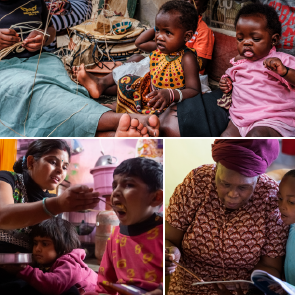Global Policy Summary: Childcare Crisis
March, 2021
A year into the pandemic, we are no longer just worrying about progress on women’s equality coming to a standstill. We’re now seeing the possibility of such progress being reversed. Globally, women tend to work in low-paying jobs and in the informal sector—precarious employment that has been upended by lockdowns and COVID-19 restrictions. Adding another layer to this burden, women’s unpaid care work is soaring. The childcare crisis is at a tipping point. Despite being key to human well-being and to the functioning of the economy, care work remains unrecognised, undervalued, and predominantly performed by women and girls the world over. The pandemic has accelerated the demand for care work and exacerbated entrenched gender inequalities. Childcare must be addressed within our COVID-19 recovery plans both to advance gender equality and because it makes fiscal sense.
Bill & Melinda Gates Foundation, the International Development Research Centre (IDRC), and IWWAGE at LEAD have collaborated to undertake an evidence review of the current childcare crisis and the road for post-COVID recovery and resilience. This brief based on the paper released on International Women’s Day, March 8, 2021 outlines the different pathways in which COVID-19 is impacting women’s care burden, with recommendations for policy solutions and measures that could be explored in different contexts by governments, the private sector, and other key development actors, with a focus on low- and middle-income countries (LMICs).
Resource Type Learning note
Partner Organisation Bill & Melinda Gates Foundation, the International Development Research Centre (IDRC), FemDev
Topics Gender, COVID-19, childcare

















































